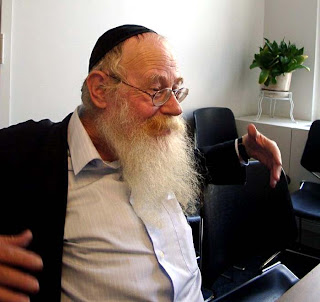There is a quotation from the kabbalistic work of Rabbi Chaim Vital, Sefer Etz Hayyim, that our world is one that in its majority is a world of evil.
Evil is the ruler of this world and there is very little good in it.
If I could express it in perhaps a paradoxical way, I would turn to the 18th century dispute between Leibnitz and Voltaire.
Leibnitz said we lived in the best of all possible worlds, and Voltaire, who wrote Candide, made fun of Leibnitz and came to the conclusion that we live in the worst of all possible worlds.
If we were to look at this question from a Jewish point of view, I would answer in the following way:
“We are living in the worst of all possible worlds in which there is still hope.”
There are, indeed, worlds below us in which there is no hope at all, and this is what we call “Hell.”
But to speak of the entire structure of our own world: it really is a world on the very brink.
If it were to be slightly, just slightly, worse than it actually is, then its basic structure would become entirely hopeless; the balance would be irreversible and evil would be irrevocable.
As it is now, evil can be conquered, but we are not living in a Leibnitzian paradise, but in a world in which we have to accept a vast amount of evil.
What I am saying is not usually understood as a Jewish idea, but I think that it is really a statement of what I would call “Jewish optimism.”
If a person sees the world as all pink and glowing, he is not an optimist, he’s just a plain fool. An optimist, on the other hand, is one who in spite of seeing the terrible facts as they are, believes that there can be improvement.
If everything were all right, then you wouldn’t have to be an optimist. So I do believe that we, as Jews, are optimists because we are a people with hope and we have a theology of hope.
From “The Mystic as Philosopher: An Interview with Rabbi Adin Steinsaltz,” in the Jewish Review conducted by Sanford L. Drob and Harris Tilevitz

